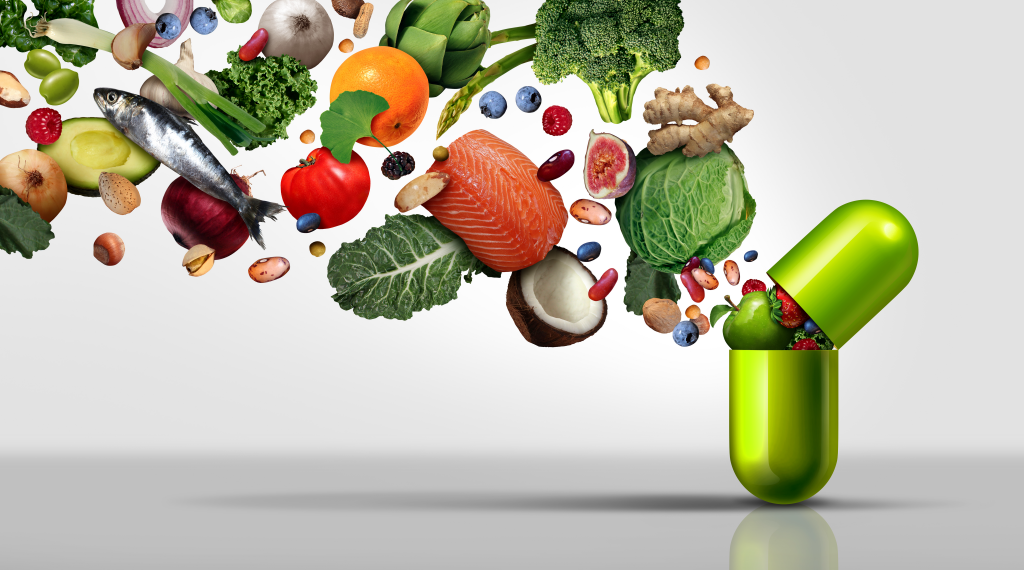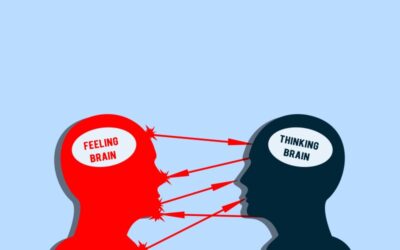Brain Health and Recovery: Food IS Medicine
Food can be an excellent tool to enhance brain health and recovery. However, if you thought the brain was a complicated system to understand, the data on nutrition is far more complicated. So, spoiler, there is no “perfect diet” to optimize brain healing after a neurologic injury. However, food is arguably the most powerful “therapeutic”.
How you ask?
Well, the journey of that bundles of molecules (food) from mouth to a single cell is long. And not all molecules that enter the journey are created equal. Some have noble intent (provide cellular energy, support cell structure and function). On the other hand, others are hell bent on wreaking havoc.
Knowing the difference is a critical component to empower you to make the best food choices to get the greatest therapeutic impact. That said, in this article you will learn how food is broken down and taken up into the cells (digestion). This mechanism is the foundation for understanding why our food choices matter when it comes to brain health and recovery.
Your digestive system and how it works
If you have been following me for a while, you know I love to provide a good story to help deepen understanding of critical concepts for neurologic rehabilitation. In this case, the story starts with that first bite of goodness that will eventually be used to impact the functioning of the little cells that make up the body. Often referred to as digestion.
Digestion is the process by which the body breaks down food into smaller molecules to be used by the body to sustain life. It is a complex process that involves the coordination of many different organs and enzymes in the body.
The process of digestion begins in the mouth, where food is chewed and mixed with saliva, which contains enzymes that begin to break down carbohydrates.
From the mouth, food travels down the esophagus and into the stomach, where it is mixed with stomach acid and digestive enzymes that break down proteins. The stomach also churns the food, breaking it down into smaller pieces.
After leaving the stomach, food enters the small intestine, where it is further broken down by enzymes from the pancreas and bile from the liver. Nutrients from the food are absorbed into the bloodstream through the walls of the small intestine.
The remaining waste products then move into the large intestine, where water is absorbed and the waste is formed into feces. The feces are then eliminated from the body through the rectum and anus.
Food IS Medicine
In summary, food is to be enjoyed. However, food is ALSO about function. Those broken down molecules are critical to cell survival, growth, AND repair. Food IS the most critical component to brain health and recovery after injury. In other words, food IS arguably the most valuable “medicine”. So the next time that piece of chocolate cake calls our name, I hope that you and I can choose wisely.
Articles you may be interested in:
Looking at the Bright Side: How Optimism Can Help You Live a Longer, Healthier Life
Are you a glass-half-full kind of person? If you are, then you’ll love what this article has to say about its impacts on health. If you struggle to look at the brighter side of things, this could be a sign that it’s time for a change. According to a clinical...
Adults throw tantrums too
Have you ever wanted something so bad that it created physical discomfort? I envision kids throwing a tantrum because they can't have something they really want. Far be it for me to argue that they are not experiencing physical pain. Fast forward a couple of decades...
What You Should Know About Sensorineural Hearing Loss
Hearing loss affects millions of people around the globe. According to the World Health Organization (WHO), it is experienced by almost 20% of the entire population! There are three types of hearing loss, but more than 90% are attributed to sensorineural hearing loss....
A Beginner’s Guide to Tai Chi: Benefits & More
Tai chi, also known as shadow-boxing, is a mind-body exercise developed by the Chinese as a “soft” martial art in the 17th century. This low-impact workout involves slow, intentional movements and deep breaths to achieve a meditative state of mind. It makes you...
Stronger Mind, Stronger Body
“Your mind is weaker than your emotions. But you become aware of this weakness only in moments of adversity–precisely the time when you need strength. What best equips you to cope with the heat of battle is neither more knowledge nor more intellect. What makes your...
Understanding Food Cravings, Their Triggers, and How To Manage Them
We’ve all been beset by food cravings at some point in our lives, but most of us don’t really know where they come from or how to resist them. Since cravings are associated with higher body mass indexes, it has become more important than ever to understand the science...
Vision….
Vision is perhaps our greatest strength.. it has kept us alive to the power and continuity of thought through the centuries, it makes us peer into the future and lends shape to the unknown. Li Ka-shing “I can’t”. “It’s impossible”. “I am disabled”. “I have brain...
Mindful Eating: The Moment-to-Moment Experience That Improves Your Quality of Life
Do you watch television or talk to a loved one over text while you eat? Time and again, cognitive science has proved that the human mind is incapable of performing two or more tasks at once. But, living in today’s modern, fast-paced world, we barely notice when we’re...
Want Healthy, Glowing Skin? Try Dry Brushing
Though dry brushing is a comparatively new trend in the skincare world, it has amassed an impressive 130.5 million views on TikTok under a hashtag by the same name. Gwyneth Paltrow and Miranda Kerr are fans of the beauty ritual which speaks of its popularity. As for...
Why You Should Laugh Your Way to Health
The quote, “Laughter is the best medicine,” has more truth to it than you realize. Humor skills or habits—having a propensity to laugh, the enjoyment of humor, the ability to laugh at oneself—are some of the main signature strengths one can possess. In fact, the...











